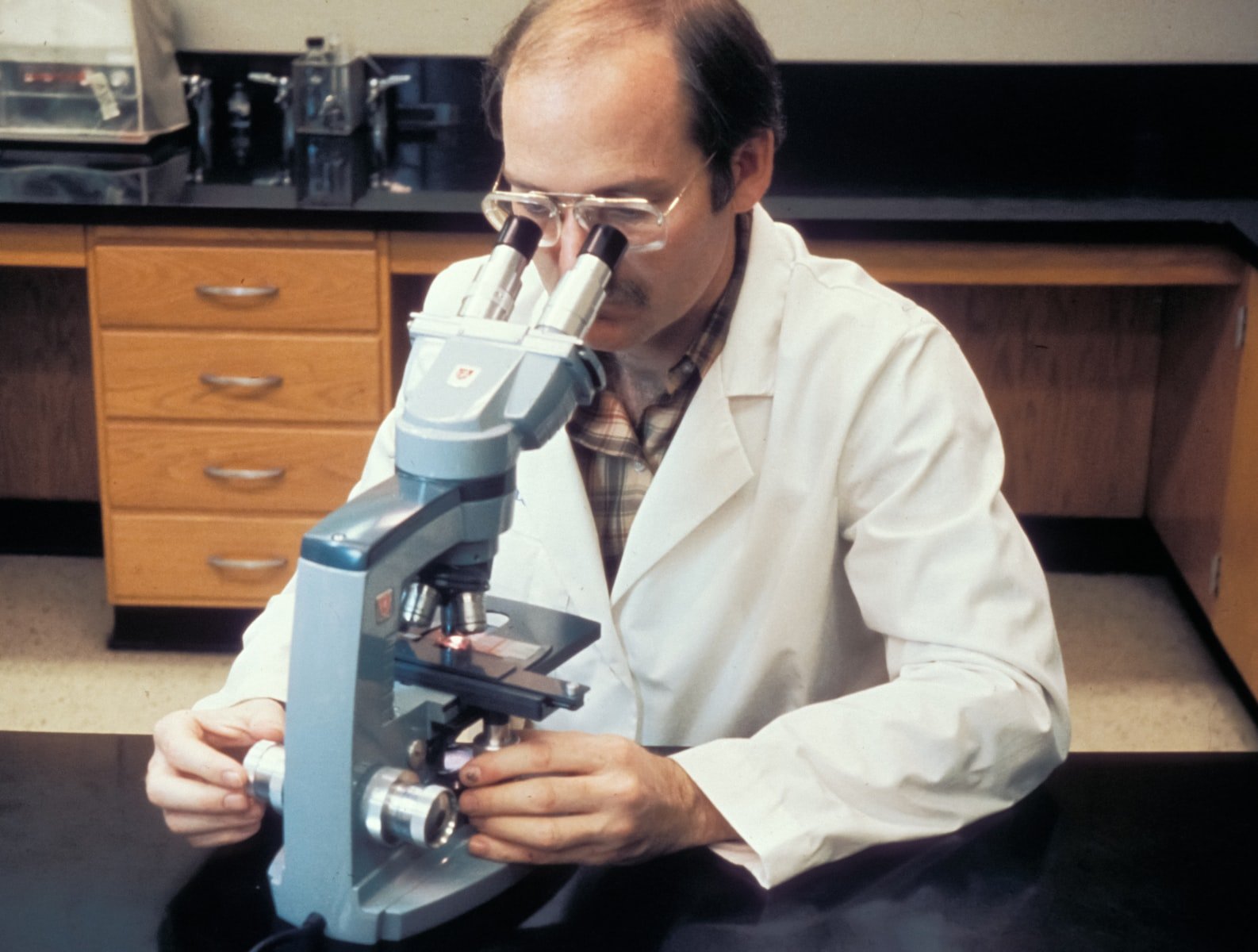Agriculture has come a long way since the days of tilling soil under the scorching sun. Enter Aero Farms, a revolutionary concept that is transforming the way we grow our food. With their cutting-edge technology and innovative approach, Aero Farms is redefining what it means to be a farmer in the 21st century. Get ready to dive into the world of vertical farming and discover how this groundbreaking method is not only changing the game for agriculture but also paving the way for a more sustainable future. So strap on your virtual boots and join us as we explore the incredible journey of Aero Farms at the forefront of agricultural revolution!
Aero Farms: A Fresh Take on Farming
Traditional farming has always been synonymous with vast stretches of land, plows, and tractors. But Aero Farms is challenging this age-old notion by introducing a fresh take on farming. Instead of sprawling fields, they have harnessed the power of vertical space to cultivate crops in a whole new way.
Imagine walking into what looks like an ordinary warehouse but is actually a high-tech farm. Rows upon rows of plants are suspended vertically from floor to ceiling, basking in the glow of LED lights that mimic the perfect conditions for growth. This innovative approach allows Aero Farms to maximize their crop yield while minimizing the need for traditional resources like soil and water.
But it’s not just efficiency that sets Aero Farms apart; it’s also their commitment to sustainability. By using aeroponic technology, which involves misting plant roots with nutrient-rich water instead of soil, they eliminate the need for pesticides and herbicides while significantly reducing water consumption compared to traditional agriculture methods.
The benefits don’t stop there – Aero Farms’ vertical farms can be located right in urban areas, bringing food production closer to consumers and reducing transportation emissions. This localized approach not only ensures fresher produce but also reduces our carbon footprint.
With their unique blend of science and innovation, Aero Farms is ushering in a new era where farming knows no bounds. They’re proving that you don’t need acres upon acres of open land; all you need is vision and determination to revolutionize an industry that has remained largely unchanged for centuries.
So next time you bite into a crisp leafy green or savor the sweetness of ripe tomatoes, remember that behind these flavors lies the ingenuity and dedication of those at Aero Farms who are redefining what it means to grow food sustainably – one vertical farm at a time!
The Science Behind Aero Farms
At first glance, Aero Farms may seem like magic – plants growing without soil and sunlight. But the truth is that it’s all based on cutting-edge science. The key to this revolutionary farming method lies in aeroponics, a technique where plants are grown in air misted with nutrients.
In traditional agriculture, crops rely on soil for their nutrients. However, Aero Farms takes a different approach by using a patented cloth fabric instead of soil. This fabric acts as a scaffold for the plant roots and allows them to absorb water and nutrients directly from the misted air.
To ensure optimal growth, Aero Farms creates an environment tailored to each crop’s specific needs. By controlling factors such as temperature, humidity, light spectrum, and nutrient levels, they can maximize yield while minimizing resource consumption.
Another crucial aspect of Aero Farms’ scientific approach is vertical farming. Instead of spreading crops across vast expanses of land, they stack them vertically in specially designed towers. This not only saves space but also makes it easier to control environmental conditions.
By harnessing the power of technology and science, Aero Farms has managed to revolutionize agriculture as we know it. Their innovative methods not only produce higher yields but also consume significantly less water compared to conventional farming practices.
With ongoing research and development efforts focused on refining their techniques even further, the future looks bright for Aero Farms’ contribution to sustainable food production worldwide.
Vertical Farming with Aero Farms
Aero Farms is revolutionizing the way we think about farming with its innovative approach to vertical farming. By utilizing cutting-edge technology, Aero Farms is able to grow crops in vertically stacked layers, optimizing space and efficiency.
One of the key advantages of vertical farming is its ability to overcome traditional limitations imposed by climate and seasonality. With Aero Farms’ controlled indoor environment, crops can be grown year-round without being reliant on external factors such as weather conditions or seasonal changes.
The vertical structure also allows for precise control over lighting, temperature, and nutrient levels. This means that plants receive optimal conditions for growth at all times, leading to faster growth rates and higher yields compared to traditional agriculture.
In addition to maximizing crop production, vertical farming also addresses sustainability concerns. Aero Farms uses a fraction of the water typically required in conventional agriculture thanks to its advanced irrigation systems. Furthermore, by growing food closer to urban centers using vacant buildings or repurposed spaces, it reduces transportation costs and carbon emissions associated with long-distance shipping.
Not only does this method require less land usage but it also minimizes the need for harmful pesticides or herbicides since pests are less likely to infiltrate indoor environments. This leads not only healthier produce but also contributes positively towards environmental conservation efforts.
Vertical farming offers immense potential for addressing global food security challenges by producing more food using fewer resources within limited spaces. With continued advancements in technology and research partnerships globally,
Sustainability and Aero Farms’ Impact
Sustainability is at the core of Aero Farms’ mission. With traditional agriculture facing increasing challenges due to climate change and limited resources, Aero Farms offers a groundbreaking solution that minimizes environmental impact while maximizing productivity.
One of the key ways in which Aero Farms promotes sustainability is through its vertical farming system. By growing crops indoors using aeroponic technology, Aero Farms uses significantly less water compared to traditional farming methods. In fact, studies have shown that vertical farms can use up to 95% less water than conventional agriculture!
Furthermore, Aero Farms eliminates the need for harmful pesticides and herbicides by creating a controlled environment for plant growth. This not only ensures healthier produce but also reduces chemical runoff into nearby ecosystems.
In addition to conserving water and reducing chemical usage, Aero Farms addresses another critical aspect of sustainability – land conservation. Vertical farming allows for crop production in urban areas or unused buildings, minimizing the need for sprawling farmlands and protecting natural habitats from further encroachment.
The impact of these sustainable practices extends beyond just environmental benefits. By cultivating crops closer to urban centers, Aero Farms reduces transportation distances and carbon emissions associated with food distribution. This results in fresher produce reaching consumers faster while reducing our carbon footprint.
With their commitment to sustainable farming practices, it’s no wonder that Aero Farms has garnered attention not only from the agricultural industry but also from investors looking for innovative solutions to address global food security challenges.
Stay tuned as we delve deeper into innovations in technology pioneered by Aero Farms that are revolutionizing modern agriculture!
Aero Farms vs. Traditional Agriculture
When it comes to farming, Aero-Farms is rewriting the rule book. Gone are the days of sprawling fields and unpredictable weather patterns dictating crop yields. Instead, Aero-Farms embraces vertical farming techniques that have revolutionized agricultural practices.
Traditional agriculture relies heavily on vast expanses of land, often leading to deforestation and habitat destruction. In contrast, Aero Farms utilizes vertical space by stacking crops in specially designed towers, maximizing efficiency and minimizing environmental impact.
Water scarcity is a major concern in traditional agriculture, but Aero-Farms has found innovative ways to address this issue. By utilizing a unique aeroponic system that delivers water directly to plant roots as a fine mist, they can reduce water usage by up to 95% compared to traditional methods.
In terms of productivity, Aero Farms leaves traditional agriculture in the dust. With their controlled environment systems that optimize lighting conditions and nutrient delivery for each individual plant, crops grow faster and yield higher volumes than ever before.
Another advantage of Aero Farms over traditional agriculture lies in its ability to cultivate plants year-round without being hindered by seasonal limitations or adverse weather conditions. This means consumers can enjoy fresh produce regardless of the time of year or location.
By growing crops indoors under LED lights instead of relying on sunlight like traditional farms do – Aerofarms eliminates the need for pesticides while also reducing energy consumption significantly making them more sustainable options for food production long-term
It’s important not only to compare these two agricultural approaches but also recognize their coexistence potential; while AeroFarms may be suitable for urban environments with limited space available such as cities where there might not be enough room left due population growth increasing demands from people living there who want easy access local foods grown sustainably using advanced technologies etc., rural areas which still practice conventional methods won’t get affected negatively since both serve different purposes catering needs diverse communities around world
Innovations in Aero Farms Technology
Aero Farms is at the forefront of revolutionizing agriculture with its cutting-edge technology. Through constant innovation, they have developed unique solutions to address the challenges faced by traditional farming methods.
One of the key innovations in Aero Farms’ technology is their use of vertical farming systems. By stacking crops vertically instead of spreading them horizontally, Aero Farms maximizes space utilization and increases crop production. This allows for higher yields in smaller areas, making it ideal for urban environments where land availability is limited.
Another innovative aspect of Aero Farms’ technology is their use of aeroponics. Instead of using soil as a growth medium, plants are grown in a misting environment where nutrients are delivered directly to the roots through water vapor. This method not only conserves water but also eliminates the need for pesticides and herbicides commonly used in traditional farming.
Furthermore, Aero Farms utilizes advanced LED lighting systems that mimic natural sunlight conditions. These lights can be fine-tuned to provide specific wavelengths needed for optimal plant growth, resulting in faster harvest cycles and healthier crops.
The integration of data analytics and machine learning algorithms has also been instrumental in optimizing crop growth at Aero Farms. Sensors throughout their vertical farms collect real-time data on temperature, humidity, nutrient levels, and more. This data is then analyzed to make precise adjustments to create ideal growing conditions for each crop variety.
With these innovative technologies combined, Aero Farms has created an efficient and sustainable model that addresses many environmental concerns associated with traditional agriculture practices while producing high-quality crops year-round.
As technology continues to advance rapidly, we can expect even more exciting developments from Aero Farms as they strive towards cultivating crops for the future sustainably!
Aero Farms: Cultivating Crops for the Future
The future of agriculture is taking a fresh and innovative turn with the emergence of Aero Farms. This revolutionary approach to farming is paving the way for sustainable and efficient crop cultivation, addressing some of the biggest challenges facing traditional agriculture.
Aero Farms utilizes vertical farming techniques that allow crops to be grown in a controlled environment without soil or sunlight. By utilizing aeroponics, where plants receive nutrients through misting rather than being submerged in water, Aero Farms can maximize space utilization and reduce water consumption by up to 95%. This groundbreaking technology allows for year-round production regardless of weather conditions, bringing us one step closer to food security.
With traditional agriculture heavily reliant on land availability and weather patterns, Aero Farms provides a solution that transcends these limitations. By growing crops vertically in stacked layers within indoor facilities, farmers can optimize land usage while minimizing waste. This not only maximizes productivity but also reduces transportation costs associated with long-distance food supply chains.
Furthermore, Aero Farms’ controlled environment allows for precise monitoring and management of factors such as temperature, humidity, light intensity, and nutrient levels. With advanced data analytics at their disposal, farmers can fine-tune these parameters to create optimal growing conditions tailored to specific crop varieties. The result? Consistent harvests with higher yields and superior nutritional profiles compared to conventionally grown produce.
In addition to its efficiency advantages over traditional farming methods, Aero Farms takes sustainability seriously. Their commitment extends beyond conservation efforts like reducing water usage – they are also actively involved in initiatives aimed at reducing food waste throughout the supply chain. By partnering with local communities and implementing farm-to-table distribution models, Aero farms ensures that their produce reaches consumers quickly after harvest while maintaining maximum freshness.
As we look towards the future of agriculture and feeding an ever-growing global population sustainably, Aero farms holds immense promise. Their ability to cultivate high-quality crops using minimal resources makes them a key player in revolutionizing the way we grow and consume food.
Challenges and Opportunities in Aero Farms
As revolutionary as Aero Farms may be, it is not without its fair share of challenges. One major hurdle is the high initial investment required to set up a vertical farming system. The cost of purchasing and installing specialized equipment, such as LED lights and climate control systems, can be substantial. However, proponents argue that the long-term benefits outweigh these upfront costs.
Another challenge is the energy consumption associated with running a vertical farm. Due to the need for artificial lighting and precise climate control, Aero Farms require significant amounts of electricity. Finding sustainable energy sources or improving energy efficiency are key areas of focus for future development.
Additionally, scaling up production to meet growing demand presents its own set of challenges. As more people recognize the advantages of vertical farming, there will be a need to expand operations while maintaining quality standards and minimizing environmental impact.
Despite these challenges, there are abundant opportunities offered by Aero Farms. Vertical farming allows for year-round crop production regardless of geographical limitations or seasonal changes. This offers food security benefits by reducing reliance on traditional agriculture vulnerable to weather conditions.
Furthermore, Aero Farms’ technology enables crops to grow faster than conventional methods while using significantly less water. This not only conserves precious resources but also provides an opportunity for regions facing water scarcity or droughts.
In addition to agricultural benefits, Aero Farms has potential economic advantages too. By establishing urban farms close to markets or even within cities themselves, transportation costs can be minimized and fresh produce can reach consumers faster – leading to increased profitability.
With ongoing research and advancements in technology combined with supportive government policies promoting sustainable practices in agriculture, Aero Farms has immense potential for growth and global adoption. Its ability to address pressing environmental concerns while providing locally grown produce makes it an attractive option for those seeking innovative solutions in agriculture.
The journey ahead may present obstacles, but the possibilities are vast when it comes to revolutionizing our approach to feeding the world.
Aero Farms’ Global Reach and Future Prospects
As Aero Farms continues to revolutionize the agricultural industry, its impact is not limited to a single location or region. With its innovative approach to vertical farming, Aero Farms has the potential to address food security challenges around the world.
Already, Aero Farms has expanded beyond its initial facility in Newark, New Jersey. They have partnered with companies and governments worldwide to establish farms in various locations, bringing fresh produce closer to urban centers and reducing the carbon footprint of transportation.
The scalability of their technology allows for customized solutions tailored to specific climates and market demands. By optimizing crop growth conditions such as temperature, humidity, light spectrum, and nutrient composition within controlled environments, Aero Farms can grow a wide variety of crops all year round regardless of external factors like seasonality or weather patterns.
This level of control also means higher yields per square foot compared to conventional agriculture methods. As space becomes increasingly scarce due to urbanization and population growth globally, vertical farming offers a viable solution for sustainable food production without compromising valuable land resources.
Moreover, Aero Farm’s commitment goes beyond just growing crops efficiently; they are actively engaging in research collaborations with academic institutions and partnering with local communities. Through these initiatives, they aim not only to improve agricultural practices but also promote education about sustainable food systems while supporting local economies.
Looking ahead into the future prospects of Aero Farms technology holds even more promise. As advancements continue at a rapid pace in areas such as automation techniques and artificial intelligence integration into farm management systems – there is no doubt that this innovative form of agriculture will play an essential role in addressing some significant global challenges we face today.
In conclusion (without actually stating “in conclusion”), Aero Farms represents a groundbreaking shift towards sustainable farming practices by leveraging cutting-edge technology. Their unique approach provides numerous benefits including increased productivity per square foot compared traditional agriculture methods while reducing resource consumption like water usage significantly.
With their expanding global reach fueled by a commitment to research, collaboration, and education, Aero Farms is well-positioned.







